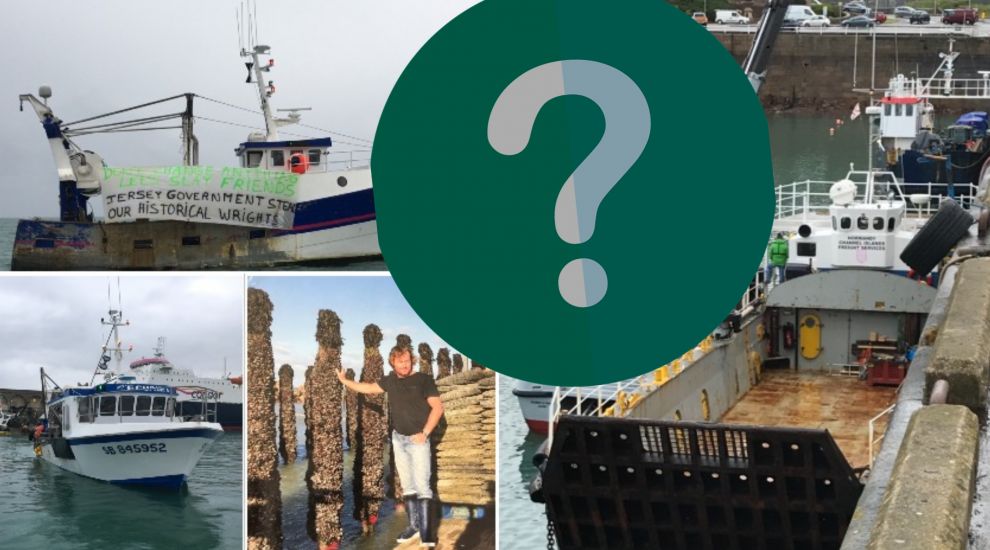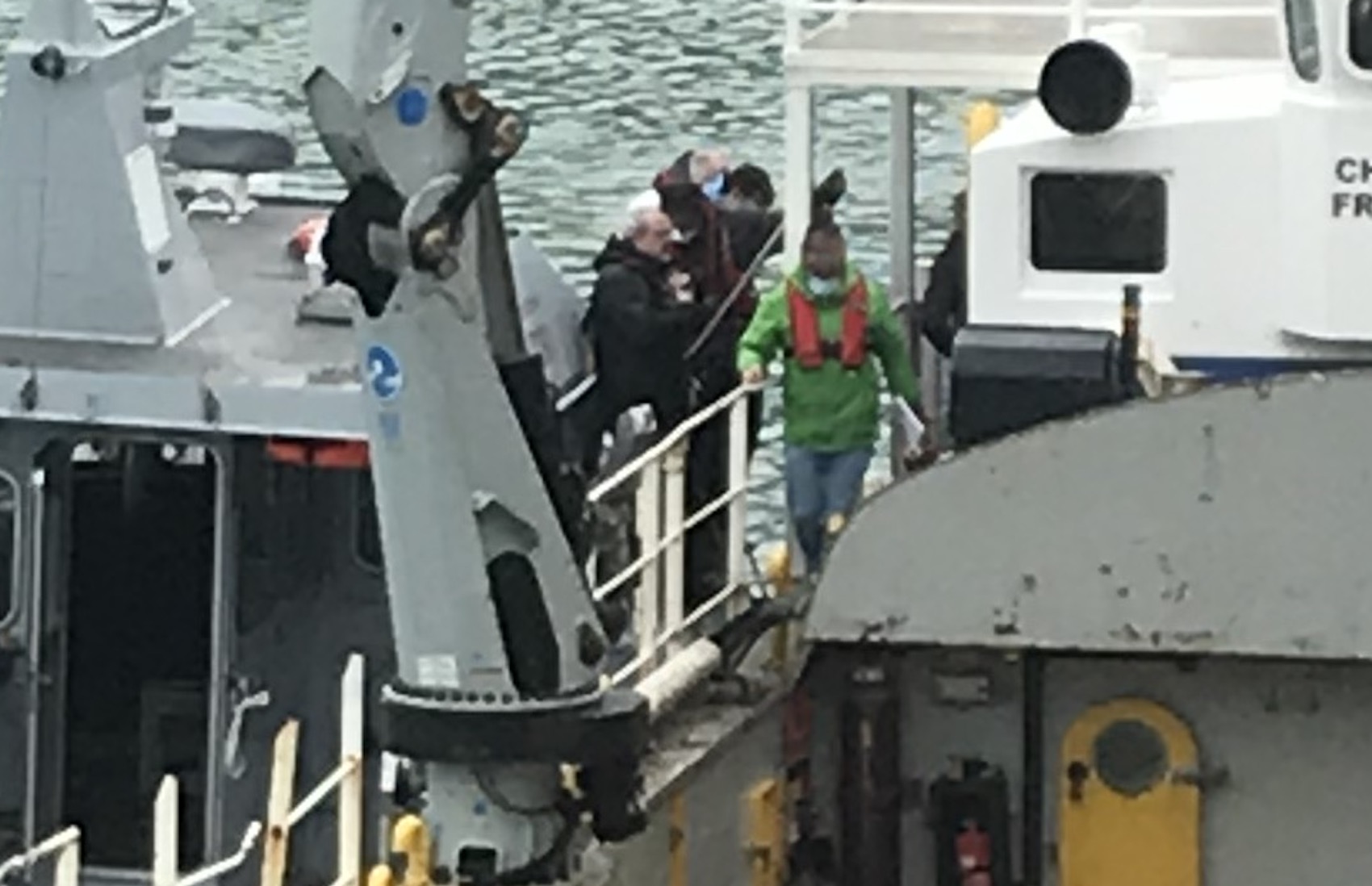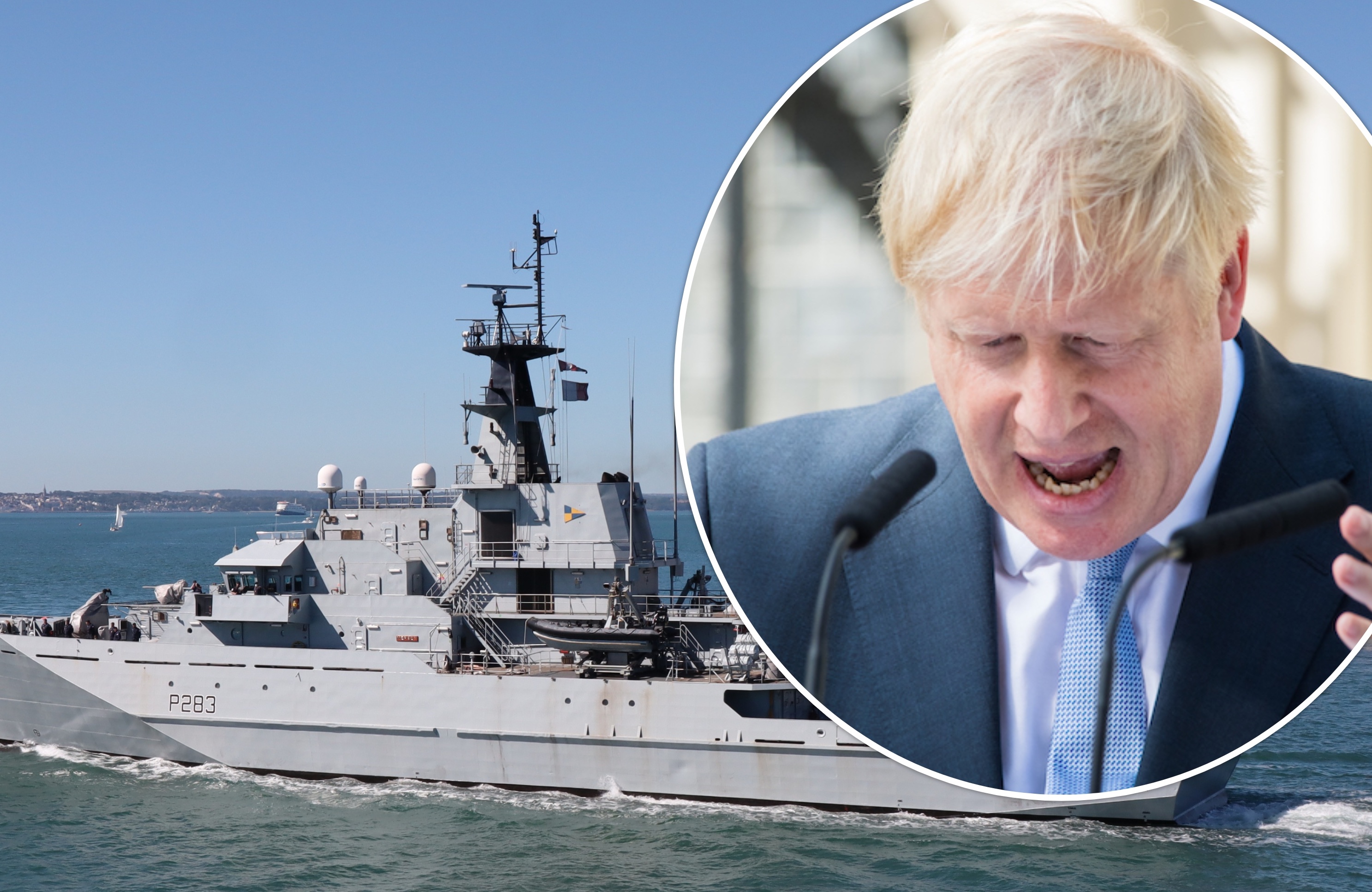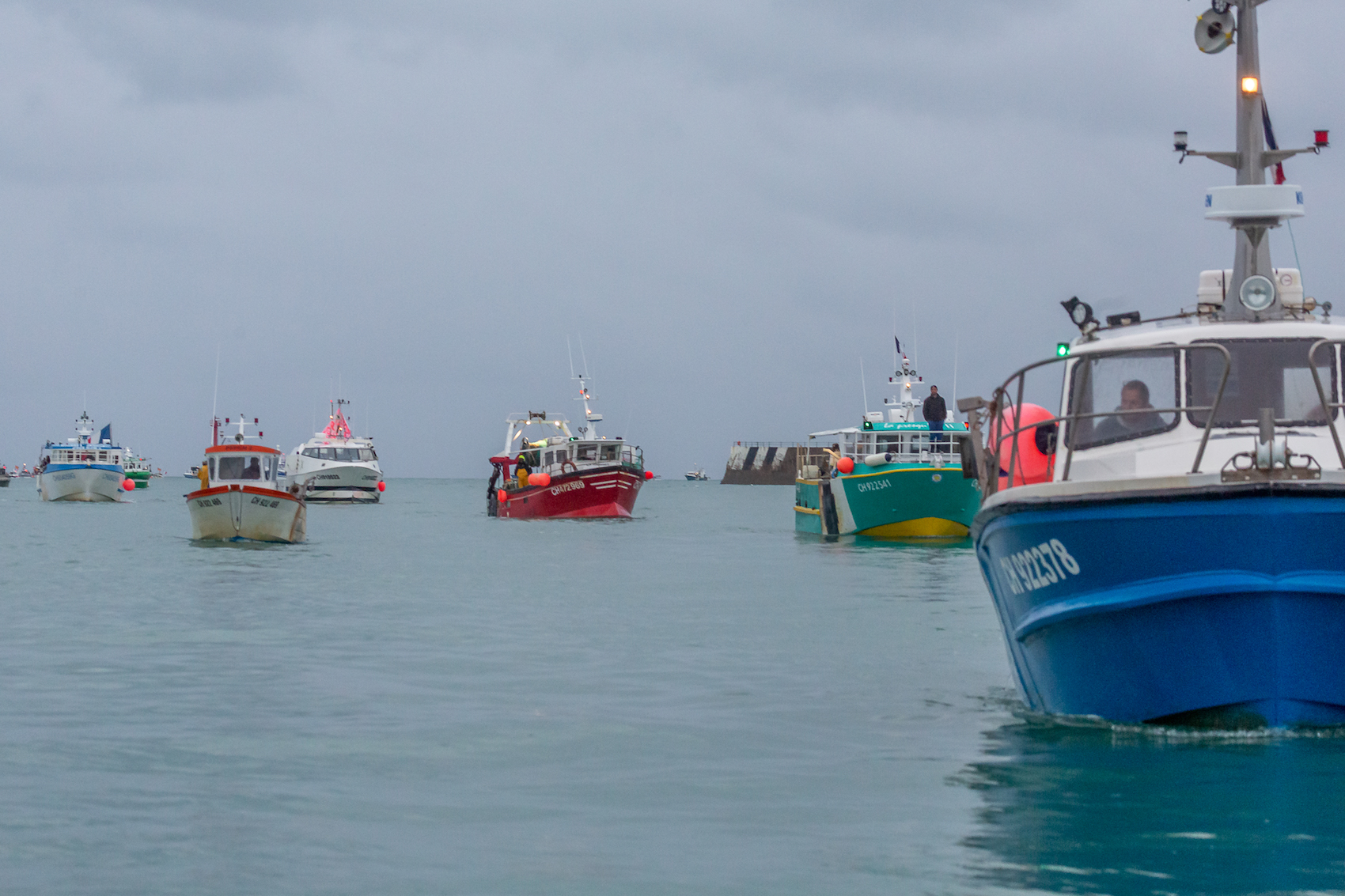


While protesting French boats and Navy ships might have now left our waters, the crisis is far from over, and there are still several key questions that need answering.
Here, Express explores each one of them in depth…
In case you haven’t been paying attention, a quick recap…

Pictured: The European Commission gave its backing to French fishermen on Thursday.
The root of French anger is Jersey’s new regime for controlling fishing in its waters after Brexit.
To do this, the island began issuing licences to apply from 1 May – but the French said that not enough boats had been given one, and that those that had would struggle under the weight of new restrictions attached to the licences (zones of fishing, types of fishing, days at sea per year), apparently without any warning.
This, they claimed, broke the UK-EU Brexit deal.
Amid Thursday’s protests, the European Commission gave its backing to the French fishermen.
They were clear that, unless they received strong justification from the UK authorities, these conditions “should not apply.”
But Jersey’s Government maintains that all permits were issued in line with the evidence about previous activity supplied to the island. If the permits and conditions attached to them received by the fishermen came as a surprise, they said that this must have been the result of a communication issue.
This argument was advanced by Assistant Environment Minister Deputy Gregory Guida in emergency boat-to-boat talks with the protesters last week. However, the explanation failed to satisfy the French, with their authorities just 24 hours later retaliating at Jersey’s apparent intransigence by officially closing the ports of Carteret, Dielette and Granville to Jersey fishermen.

Pictured: Deputy Gregory Guida conducted emergency boat-to-boat talks with French fishermen last week.
Jersey says this measure – effectively an economic sanction – is a breach of the Brexit deal.
This is because the Trade and Cooperation Agreement (TCA) between the UK and EU says that one jurisdiction can only ‘punish’ another at the end of a special process for resolving disputes.
If diplomacy fails, the TCA sets out a formal arbitration process that would see the UK, representing Jersey, go head-to-head with the EU, fighting France’s corner.
The tribunal then makes a ruling as to who is in the wrong. If the guilty party does not put things right, the complaining side can then punish them in a “proportionate” way.
Speaking on TV channel France 5 over the weekend, the EU’s former top Brexit negotiator Michel Barnier said he was firmly of the view that Jersey were in the wrong.
“The French fishermen are right. In the agreement that I negotiated, this was the very last topic in the last hour of negotiation to find an agreement, at the end of which we gave the British some fishing opportunities back. Let’s not forget they could have taken all of them back, they could have completely excluded us from their waters," he said.
“European fishermen fish around €650m-worth in British waters. They could have taken all of it back, they only took back 25% and we kept 75% and we secured, within the agreement, for five-and-a-half years, a stability, a transition, during which fishermen from France, Belgium or the Netherlands could continue to fish, in particular within the six to 12-mile zone.
“This agreement needs to be respected and I can’t understand why, a few months after this agreement was made, the British keep on causing so many issues. If it continues, we will have to use what’s in the agreement, the retaliatory measures.
“We can re-impose customs tariffs on some fisheries products, we can exclude the British from our waters because they also fish in part in our waters, we can also go further like the Minister said and take other retaliatory measures, but frankly, for an issue of proximity, of people who live together, we need to come back to our senses and the British need to apply the agreement they signed.”

Pictured: Prime Minister Boris Johnson pledged to give full support to Jersey.
The Prime Minister pledged to give Jersey his full support, while All Party Parliamentary Group for the Channel Islands Chair Andrew Rosindell MP told the i newspaper that the UK would stand with Jersey “in the face of coercion.”
“The Channel Islanders are strong people who have endured many challenges during their long association with the Crown. They are not people to be bullied and France must understand this and back off,” he said, adding: “The French government must be told that any threats made against the Channel Islands will be seen as being made against all of us throughout the British Isles. Jersey will not stand alone.”
Some French fishermen, who claimed they had fished in island waters for many years, didn’t receive permits. Some said their licences slashed their number of days at sea per year by more than half. Others claimed they were only given licences to fish for whelks when they were actually lobster and scallop boats.
While some fishermen felt this was done deliberately and in bad faith, Jersey has instead pinned the blame on the fact that the Brexit deal prevents them from speaking directly to the French, meaning that some information may have been lost along the way.

Pictured: Some French fishermen who claimed they had fished in the island for many years, said they had not received permits under the new licensing system.
There is now a ‘UKSIA’ (UK Single Issuing Authority), which receives applications from the European Commission, on behalf of EU Members, for a licence to fish in Jersey waters. Those applications are then sent on down to Jersey to determine, and issue the licence. If the fisher doesn’t agree with the details in that licence – which has been one of the major points of contention – they are advised to “inform (their) flag state (i.e. France) fisheries authority immediately” – and so the issue goes back around the European communications loop.
Deputy Guida told French radio station France Bleu that there were “horreurs” in the paperwork eventually received by the island at the end of this process, including missing and duplicated pages.
So where in that process did the information get lost? Were there cracks at the European Commission or UK Government level that it fell through?
Or was it that the French provided poor paperwork to begin with? If so, why was this the case? Was it made clear enough to them what was needed?
As a way of smoothing over the permit issues with the French fishermen, Jersey has proposed two key remedies:
But it remains unclear whether this method of smoothing things over is actually legally possible.

Pictured: One of Jersey's proposed mandates to smooth communications is a dedicated hotline manned by a French speaker.
Longwinded and counter-intuitive though it may be, the TCA sets out a clear communications process.
Will both nations be given the green light to bypass this?
Officially unable to land catch in Carteret, Dielette and Granville, Jersey’s fishing community will now be considering how to alter their operations.
Will they scale back, try a route via Saint Malo or attempt to offload more in the local market?
The main shellfish merchant in Jersey, Aqua-Mar, had to close its doors on the Victoria Pier to new catch, meaning that Jersey fishermen can only serve the local market for now.
Nathalie Porritt told Express on Friday that the business had between six and seven tonnes of crab and lobster in its tanks, which were at full capacity.
“We’ve paid the fishermen for them so we obviously want to ship them as soon as we can,” she said.
“Because we can’t accept any more catch, Jersey fishermen will have to sell directly to the local market. Some boats may have to tie up and stop fishing until we start exporting again. When that will be is anyone’s guess.”
There’s also a question of whether Jersey fishermen will retaliate.
Some have suggested blockading the French ports, while others have even floated the highly provocative idea of lifting French equipment from island waters.
Follow Express for updates this week...
Comments
Comments on this story express the views of the commentator only, not Bailiwick Publishing. We are unable to guarantee the accuracy of any of those comments.